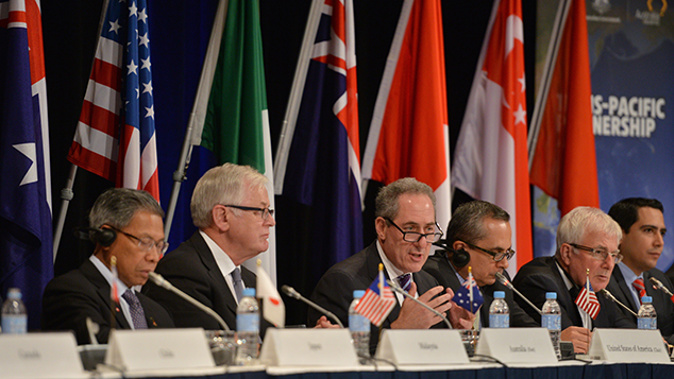
The government has released a formal analysis of the Trans Pacific Partnership trade deal, a week and a half before the agreement's due to be signed in Auckland.
The National Interest Analysis claims that to stand aside from the TPP risks marginalisation and decline in the region.
It warns New Zealand's competitiveness in TPP markets would be eroded, and trade and investment would be diverted away from New Zealand to other TPP members.
The report notes the TPP will require changes to tariff and overseas investment laws, as well as amendments to the Copyright, Trade Marks, and Patents Acts.
The analysis says entering the TPP is in New Zealand's national interest.
The TPP will see the length of copyright extended from 50 to 70 years and officials says this will impose an annual average cost of $55 million as consumers miss savings they would have got from works coming into the public domain earlier.
The report says the cost of the copyright extension for books will be $21 million , while for music it will be around $17 million. A similar sum is estimated for film and television works.
Despite serious concerns raised by Opposition parties and iwi groups, the Analysis insists the TPP contains a Treaty of Waitangi exception, similar to one used in other free trade agreements.
The reports says as a result, nothing in the TPP prevents the Crown from meeting its obligations to Maori, including under the Treaty of Waitangi.
Lori Wallach, the Washington-based Director of Public Citizen Global Trade Watch is in New Zealand lobbying against formalising the agreement, and claims that any country that rushes into signing the deal will end up in an embarrassing situation of having to make more concessions or approving something that hasn't been approved by other countries.
"When we first heard that the New Zealand parliament was actually voting on this agreement before the US Congress, frankly everyone was just shocked," she said.
"It's not approvable the way it is written now, and changes are going to have to happen."
Take your Radio, Podcasts and Music with you









